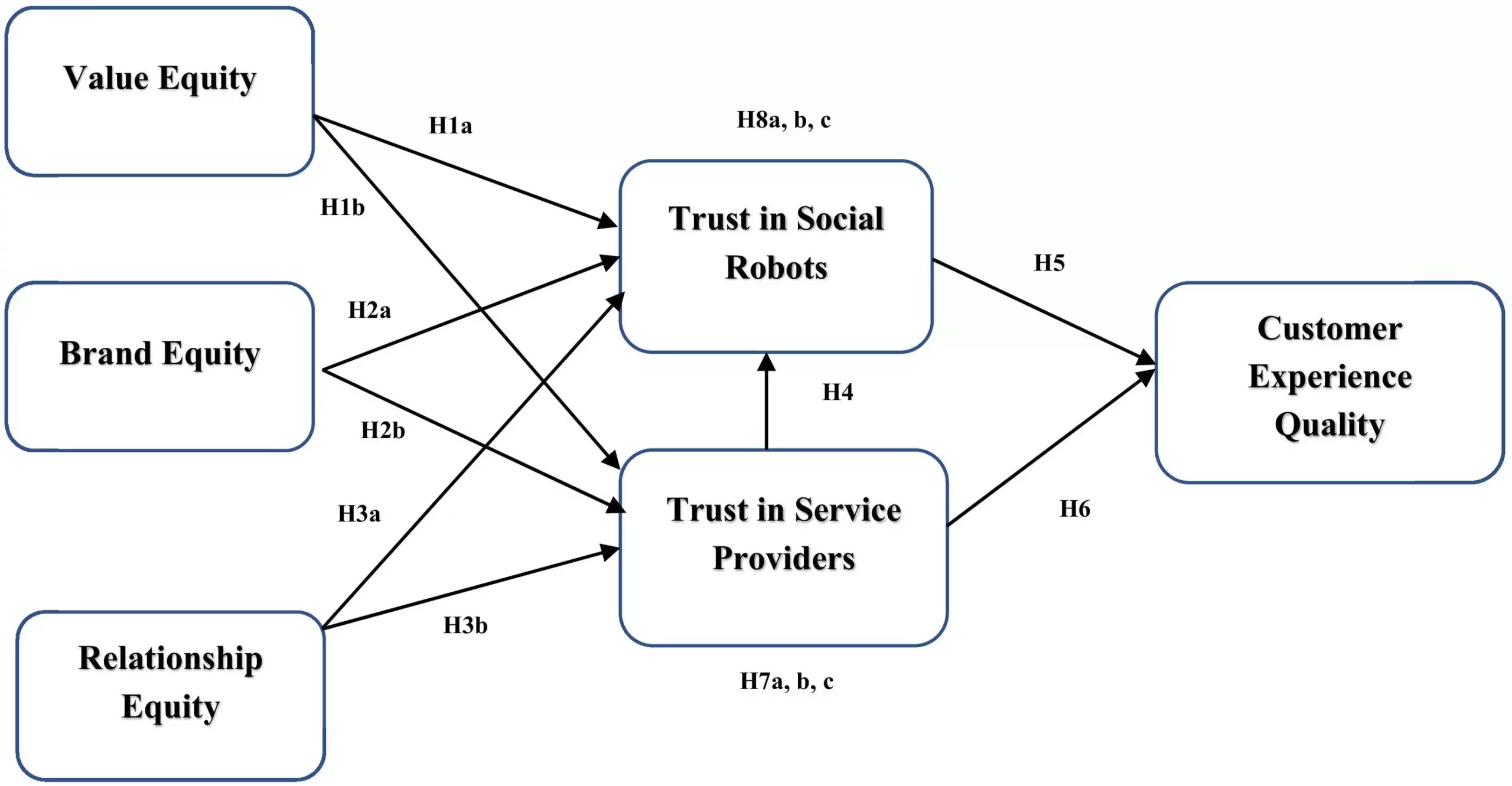In a world where artificial intelligence is a topic of debate, research conducted by Edith Cowan University suggests that the introduction of social robots in a commercial environment would likely be better received. The study, led by Professor Sanjit Roy, delves into the realm of customer equity drivers such as value equity, brand equity, and relationship equity, alongside trust in social robots and service providers. The research, as published in the journal Technological Forecasting and Social Change, sheds light on the growing presence of social robots in the retail sector, aligning with the principles of Industry 5.0, which emphasize the collaboration between humans and machines.
Professor Roy emphasizes that technology should serve as a complement rather than a replacement for human service workers, ultimately benefiting customers. Social robots have been demonstrated to serve various roles, from entertainers to mentors, showcasing their potential as supportive and social actors. Their capabilities extend beyond mundane tasks to complex assignments, such as assisting in medical diagnoses and professional services like financial auditing and surgical procedures. The utilization of social robots enables service providers to expand their offerings, boost productivity, cut costs, and automate processes, among other advantages.
Creating Value Equity Through Social Robots
The study reveals that businesses stand to gain from incorporating social robots into their operations, particularly in terms of enhancing customer service and creating value equity. The presence of social robots enhances perceptions of service quality by increasing efficiency and effectiveness, thereby elevating customers’ perceived value equity. When customers perceive value in the form of improved services facilitated by social robots, trust is established between the customers and the machines. This trust forms the basis of a relationship, with each successful interaction reinforcing trust and paving the way for a positive long-term relationship.
While the introduction of social robots may lead to concerns about the authenticity and warmth of human interactions, the focus on efficiency and convenience can outweigh these drawbacks. Depending on the industry and service type, customers may prioritize utilitarian benefits over social connections. For example, in banking, the successful completion of transactions may be more critical than engaging in casual conversations. The research suggests that trust in service providers plays a pivotal role in shaping trust towards social robots, particularly for customers who lack direct experience with the technology.
Strategies for Building Trust in Social Robots
To optimize customer experiences with social robots, businesses should concentrate on enhancing relationship equity and brand equity. Emphasizing brand identity and fostering long-term relationships can cultivate trust, which in turn influences customers’ perceptions of social robots. Trust-building initiatives, such as transparent and reliable services, consistent communication, and delivering on promises, are key factors in reinforcing trust and enhancing customer experiences with social robots. By prioritizing these elements, retailers can bridge the gap between customer equity drivers and customer experience quality, ultimately fostering a positive environment for the integration of social robots in retail settings.


Leave a Reply